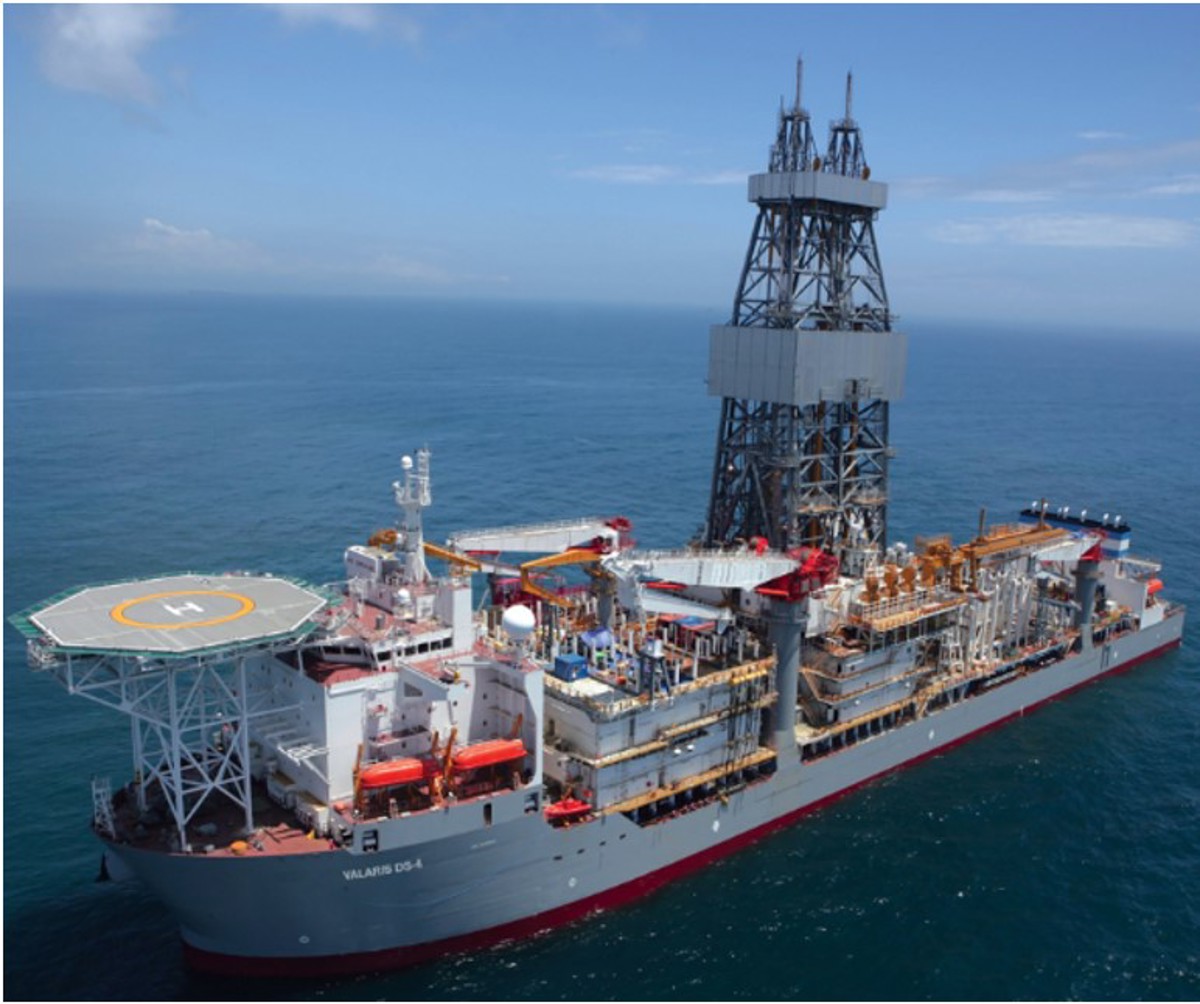Failure of moorings during heavy weather
- Safety Flash
- Published on 8 November 2022
- Generated on 5 March 2026
- IMCA SF 25/22
- 2 minute read
Jump to:
The Marshall Islands registry has published a casualty investigation report into an incident where the drill ship Valaris DS-4 lost its moorings in heavy weather while being prepared for lay-up.
What happened?
Offshore winds from the northeast had increased throughout 2 February 2021 and by 1800 were between 50-55 knots. At about 1915, VALARIS DS-4’s moorings failed during storm force winds. The drill ship was blown off the jetty and drifted to the southwest until about 1923, when the anchor, which had previously been deployed as part of the VALARIS DS-4’s mooring arrangements, held. This likely prevented the drillship from going aground on an island about 400m to the west. Another similar drill ship ENSCO DS-8 remained moored alongside the jetty with tug assistance and the use of its thrusters.

VALARIS DS-4’s crew were able to start all but one of the drill ship’s diesel generators but did have difficulties bringing the bow and stern thrusters online. VALARIS DS-4 was re-moored after the crewmembers were able to start all but one of the azimuth thrusters.
What went wrong?
The investigation revealed the following causal factors:
- the inability of crew to bring the thrusters online in time to prevent the mooring lines from being overloaded by the storm force winds from the northeast.
- the Master did not request tug assistance when the weather forecast for storm force north easterly winds was received on the afternoon of 2 February 2021.
- Additional factors identified included:
- inadequate coordination between vessel management and the port
- inadequate identification and consideration of local conditions, including the weather
- inadequate identification of the drill ships’ power requirements
- not following the original mooring plans.
What went right
(what reduced the adverse consequences of this marine incident)
- Anchors had been pre-deployed when the drill ships were berthed.
- The arrival of tugs to hold ENSCO DS-8 alongside the berth.
Recommendations
The report’s conclusions, recommendations and proposals for action included:
- Ensure thrusters can be started appropriately and in a timely way – in this case, all six should have been able to start simultaneously.
- Develop new and better mooring plans and emergency response procedures.
- Review and revise their procedures for planning for vessel lay-ups.
Related Safety Flashes
-
IMCA SF 32/16
29 November 2016
-
IMCA SF 26/19
12 November 2019
-
IMCA Safety Flashes summarise key safety matters and incidents, allowing lessons to be more easily learnt for the benefit of the entire offshore industry.
The effectiveness of the IMCA Safety Flash system depends on the industry sharing information and so avoiding repeat incidents. Incidents are classified according to IOGP's Life Saving Rules.
All information is anonymised or sanitised, as appropriate, and warnings for graphic content included where possible.
IMCA makes every effort to ensure both the accuracy and reliability of the information shared, but is not be liable for any guidance and/or recommendation and/or statement herein contained.
The information contained in this document does not fulfil or replace any individual's or Member's legal, regulatory or other duties or obligations in respect of their operations. Individuals and Members remain solely responsible for the safe, lawful and proper conduct of their operations.
Share your safety incidents with IMCA online. Sign-up to receive Safety Flashes straight to your email.